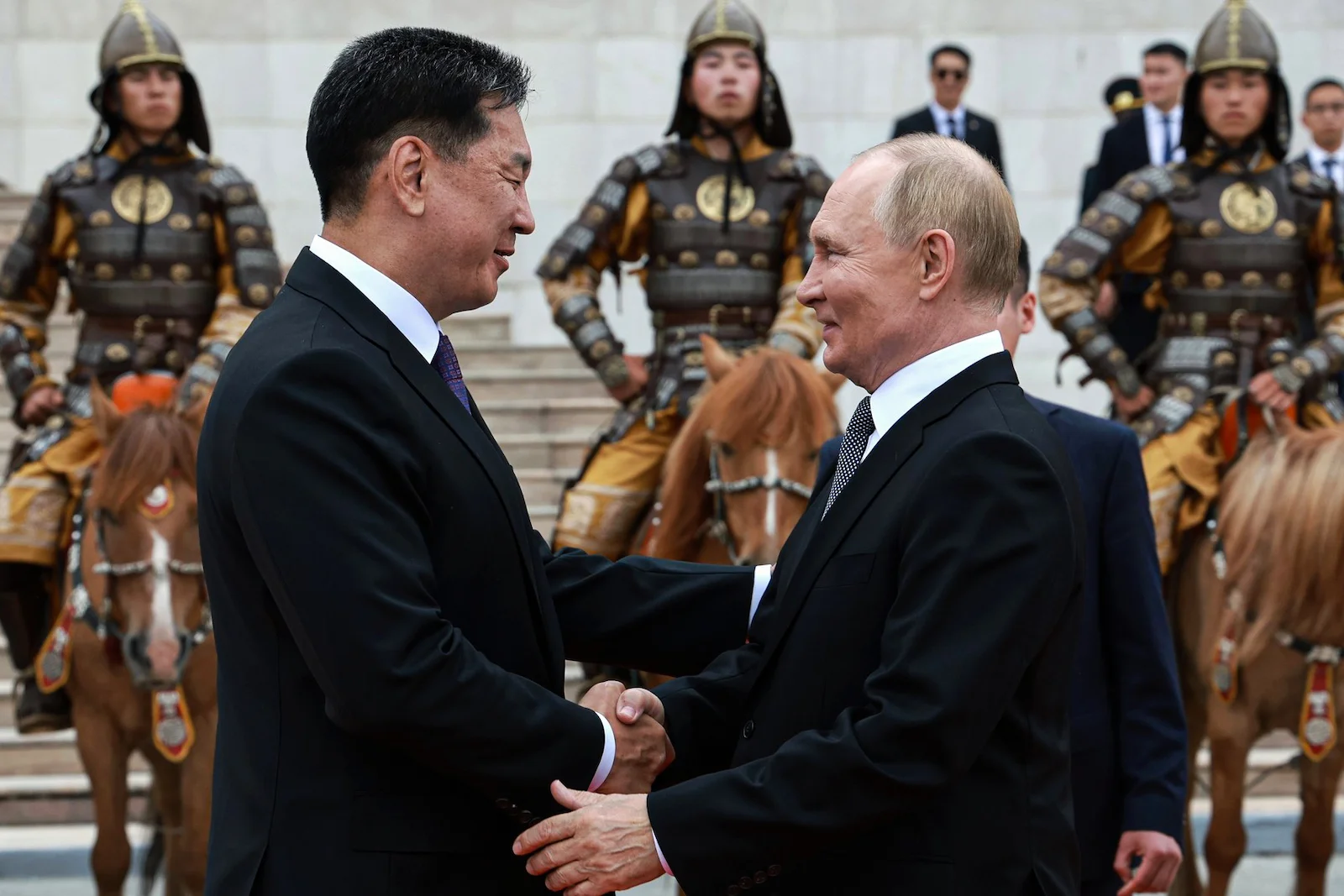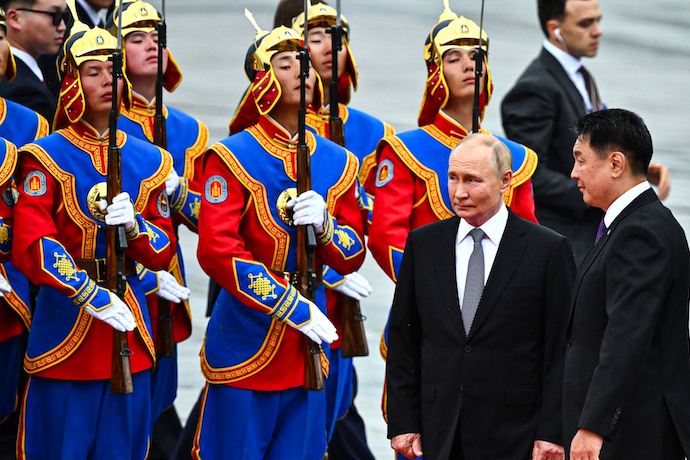
Why Didn’t Mongolia Ship Putin Off to The Hague?
Russian President Vladimir Putin’s recent visit to Mongolia this past week set off a firestorm of outrage and international debate. Mongolia now finds itself at the center of controversy as Putin visited the country with apparent impunity—marking his first visit to an International Criminal Court (ICC) member state since the Court issued an arrest warrant for him.
The crimes Putin is accused of committing are serious breaches of the Geneva Conventions, and any country that has ratified these conventions is obligated to prosecute or extradite individuals who have violated these principles. According to the Rome Statute—the founding treaty of the ICC that came into effect in 2002—ICC member states have a legal obligation to detain and surrender any person who is subject to an ICC arrest warrant, should that person set foot on their territory.
The Court’s allegations against Putin focus on war crimes, with particular emphasis on the unlawful deportation of children from Ukraine to Russia. However, the ICC has no enforcement mechanism of its own, leaving it reliant on member states to carry out its rulings. Mongolia, by defying these obligations, welcomed Putin with a ceremonial guard of honor as he met with President Ukhnaagiin Khürelsükh in the capital city of Ulaanbaatar, making clear that it would not comply with the international court’s demands.
The ICC, as it stands, lacks the ability to penalize countries for ignoring arrest warrants. It operates based on the assumption that member states will act in good faith to assist the Court in carrying out its mission. In contrast, just a few months ago, in August 2023, Putin was expected to attend the BRICS summit in South Africa but ultimately did not attend, allegedly out of fear that he might face arrest while there.
Following Putin’s visit to Mongolia, the Ukrainian Foreign Ministry issued a sharp rebuke, stating, “[We hope] that the Government of Mongolia is aware of the fact that Vladimir Putin is a war criminal.” The statement further urged Mongolian authorities to uphold international law by executing the binding ICC arrest warrant and transferring Putin to The Hague. “We call on the Mongolian authorities to execute the binding international arrest warrant and transfer Putin to the International Criminal Court in The Hague,” it added

Putin is not the first leader to avoid the grasp of the ICC. Former Sudanese President Omar al-Bashir, accused of multiple international crimes, managed to evade justice for years, traveling freely to several nations without facing arrest. This precedent has likely contributed to Putin’s ability to skirt international law, as countries weigh the risks of diplomatic fallout against their ICC obligations.
Mongolia’s actions are particularly surprising, given the country’s heavy dependence on energy imports and its longstanding adherence to a policy of neutrality. Mongolia imports 95 percent of its petroleum products and more than 20 percent of its electricity from neighboring countries, with Russia playing a critical role in its energy supply. Amnesty International Mongolia’s Executive Director, Altantuya Batdorj, strongly condemned the government’s decision. “To shelter a fugitive from international justice would not only amount to obstruction of justice,” she said. “If Mongolia provides even a temporary safe haven for President Putin, it will effectively become an accomplice in ensuring impunity for some of the most serious crimes under international law.”
The ICC’s decision to issue an arrest warrant for Putin reportedly took the Kremlin by surprise, leaving Russian authorities scrambling to adapt to the diplomatic fallout from this unprecedented move. The warrant presents a significant challenge for Russia’s foreign policy goals, as Putin has long been portrayed as a leader who stands in defiance of Western dominance, particularly positioning himself as a defender of sovereignty against what the Kremlin often characterizes as “colonial oppression” by the West. This narrative has been essential to Russia’s diplomatic strategy, especially in courting support from Latin American and African countries. Central to this strategy is the Kremlin’s image of Putin as a powerful and active global statesman. His ability to travel freely abroad has been key to projecting this leadership on the world stage.
Yet the ICC arrest warrant has cast a shadow of doubt over Putin’s future travels, raising the stakes for every international visit. The warrant is enforceable in 123 countries, and Putin now faces the very real risk of being detained the moment he steps outside of Russia’s borders.
Since the launch of Russia’s full-scale invasion of Ukraine in 2022, Putin has continued to engage in extensive international travel, attending high-level forums and summits primarily in non-Western nations. In the summer of 2022, he visited Tajikistan, Turkmenistan, and Iran, followed later in the year by diplomatic trips to Uzbekistan, Kazakhstan, and Armenia. However, his diplomatic activity has conspicuously avoided Western nations, reflecting the growing chasm between Russia and Europe, as well as with the United States. The ICC warrant has only deepened this isolation, significantly narrowing Putin’s list of possible international allies and reducing the number of states willing to host him without fear of international backlash or condemnation.
For Putin, whose political persona has long rested on an image of unshakable leadership and invulnerability, the ICC’s arrest warrant poses a direct threat to his ability to engage in global diplomacy. It complicates not only Russia’s broader geopolitical ambitions but also the Kremlin’s domestic political agenda, which hinges on maintaining Putin’s reputation as a leader unbound by international constraints.
Ultimately, while the ICC warrant is a critical symbolic gesture, its power rests entirely in the hands of member states. For now, the world watches as Putin continues to travel freely, waiting for one country to enforce the warrant and set a new precedent in international law.

